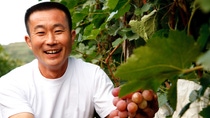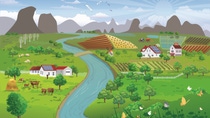Precision agriculture in the digital era
The internet is playing a key role in the transformation of industries.
What new opportunities is the agriculture industry facing with in the digital era?
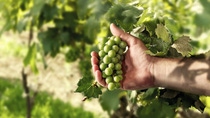
Today, more than 7 billion people are living on this planet. By 2050, the total number is estimated to reach 9.6 billion as people will be living longer as well. As economic development brings more wealth, people want and demand better-quality food. Such factors require higher efficiency in agricultural production, produce yields and quality.
In China, agricultural production has satisfied people’s basic needs to survive. High-quality agricultural products, however, are in short supply, despite infrastructure and farmers’ knowledge expected to grow.
The internet is playing a key role in the transformation of industries. In Internet + Agriculture, mobile internet is becoming more and more important. In rural areas smart phones are much easier to use than computers. So how to use digital technologies to boost the development of planting capacity and infrastructure construction? How can the agricultural development of China be speeded up? How can the quality of products and benefits for farmers be improved? Such questions have been put on the table of many internet giants and plant protection companies.
In March 2016, BASF launched its innovative “BASF Leading Grower” App to better serve farmers in China – helping them to improve their growing skills and productivity and starting a new precision agriculture model for the digital age.
Agricultural production in China is still, generally, in a primary stage, with a number of problems to be solved.
Wheat and corn production areas in the north of the country have large land holdings, but farmers in the south are mostly individuals who manage their own small fields and buy agricultural supplies from retail stores. Take crop farming and protection for example. As retail stores are driven by profit, seldom do they offer to-the-point guidance to farmers whose demand volume is relatively low when they buy products for their crops. Faced with a great number of crop protection products, in addition to farming technical services that vary in quality, farmers need a way to choose products and services that are right for them.
Farmers with smaller-sized fields usually focus on short-term profit, so they often irrationally choose crops to grow based on the market trend of the year. They may easily plant the same crops or blindly change them. The consequence will be that they harvest but they don’t profit. Farmers need to have their target crops well planned for longer term, as well as know more about the marketing channels of agro-products to really get both high yields and profits.
Technologies in agriculture, meanwhile, have been left behind for a long time and there are no efficient channels for communication and marketing. Agricultural profits, therefore, are so far below expectations that farmers leave their fields to work in cities. It is said that those born in the 1970s are reluctant to farm; those born in the 1980s refuse to farm; while those born in the 1990s don't even mention farming now.
In recent years, national policies have been issued one after another to encourage and support land transfer, home-based farms and large-scale growing. The number of large-scale farmers is increasing rapidly. Many far-sighted entrepreneurs born in the 1980s have also sensed the great opportunities in agriculture and have devoted themselves to it. Crop growing is no longer gloomy as more and more farmers are engaged in it.
According to Jiang Weiqi, Manager, Marketing, Fungicide and Specialty Crop, Crop Protection, BASF, these farmers are 35 to 45 in age, well-educated and with the best know-how in crop farming across the country. They are not just beneficiaries of land policies but also executors and leaders of modern agriculture in China. As the “cool” generation in agriculture, they are open-minded and willing to try more channels and platforms to learn new crop-farming technologies and products, and to conduct scientific planning in farming so as to improve productivity, quality and profit.
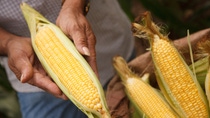
As smart phones have become necessities in people’s lives, the BASF Leading Grower App will be able to provide and deliver in-time, comprehensive and precise agricultural and technological services to meet the needs of large-scale farmers. They will be able to manage planting more efficiently. Through their phones, farmers will receive weather reports, learn about agricultural technologies and pest control and be able to consult with BASF experts through long-distance guidance about agricultural problems.
“It is a systematic job to help farmers improve quality and profits,” said Jiang. “BASF will continue to offer services in every part of the value chain of agricultural products. Our commitment to helping farmers improve the quality of farming, produce and competitiveness will never change. We will strive to help farmers maximize their profits.”
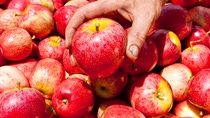
Pest control is the most common and stable operation in daily farming, independent from the changing climates each year. Fungicides, therefore, are most relevant to the quality of produce among all crop protection technologies as they strengthen a crop’s resistance and immunity to changes in the environment.
As a leading supplier of fungicides, BASF has helped Chinese farmers by launching two or more high-performance and innovative fungicides in each of the past three years. Take grapes from Jiaxing, Zhejiang, for example. Grape farmers who use the BASF farming protection solution have reduced pesticide use by 50% in terms of dosage and frequency, saving on manpower costs but harvesting more and better fruits. These grapes are healthier in their looks and of better quality, so they sell for higher prices. In general, farmers who choose to use BASF’s management solution for their grapes have a high return on invested capital, earning 27 times the outlay.
In the past, BASF promoted its products and usage tips through face-to-face meetings with farmers. The farmers attending such meetings numbered just a few dozen, while BASF’s investment in manpower and capital is quite a lot. Most farmers didn’t have access to such information, know the benefits, or communicate their problems in using the products.
Now, the BASF Leading Grower App not only promotes products and services more efficiently but also gathers information that farmers are most concerned about. They can get to know micro climates in their own fields, crops’ growing stages, the pest control in each of them and practical cases for reference. Farmers can also learn about the latest crop farming technologies and solutions, make decisions and adjust operations according to weather conditions and growing cycles.
For example, a farmer in Huizhou, Guangdong, can select his village and crops via the BASF Leading Grower App, set the technology to monitor the weather in his fields and different stages (seedling, flowering and growing) in growing and pest control. The App can also serve as an automatic reminder. The farmer may be the only farming expert in the family but when he is thousands of miles away from home, he can still arrange for his family to use plant protection products and take care of the crops.
“The BASF Leading Grower App is easy to use, like a teacher and friend to farmers by their side,” said Jiang. “Through smart phones, farmers can obtain crop protection solutions and products from us 24/7 in different locations. They are farming in scientific ways and can manage their business anytime, anywhere.”
By collecting, integrating and evaluating the backstage data of the Leading Grower App, BASF is able to strengthen its farmer-relationship management. According to Jiang, when farm information is accumulated to a certain scale, big data will come into play. In future, information about farmers, field locations and yields retrieved from this App will help BASF provide services to directly connect farmers with sales terminals and lower the risks caused by incorrect marketing information that would hurt farmers’ benefits. It will be another service BASF intends to provide to Chinese farmers.
In Hainan Island where mangoes grow, as farmers do not have relevant marketing information prices for the fruit are manipulated by resellers. Farmers sell their mangoes at one to two yuan per kilogram. After being transported by resellers and logistics carriers, such mangoes will be sold at 10-20 yuan per kilogram in tier-one cities such as Shanghai. In future, once farmers are able to deal directly with end users on the same platform, all information about supply and demand will be public and both farmers and consumers can benefit from such transactions.
As the BASF Leading Grower App is further promoted and used, hundreds of thousands of farmers will contribute to the database that will provide detailed information on produce such as variety, place of origin, when they are planted and harvested. If farmers could directly connect with fruit stores and supermarkets, brand new marketing channels would be established. Farmers who used to grow the same crops en masse can, in future, avoid such scenarios by knowing market trends, making smart planning in scientific ways and selecting the right crops to plant.
In addition, other records of farming, pesticides and residues will be also saved in the BASF Leading Grower App database. “This valuable data is not only strong proof of the product’s high quality but also basic support to track agricultural production in future. In this way, food safety can be guaranteed. We are looking forward to all of these prospects,” said Jiang. “We have just started and it takes time to promote the BASF Leading Grower App. But BASF is already in the leading position of our industry.”

Scan the QR code to download and log on to the “BASF Leading Grower” App. Invitation code: 888888.
